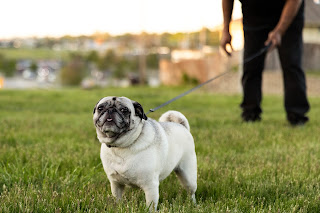best pug dog food
When it comes to choosing the best food for your Pug, it's important to consider their unique nutritional needs and overall health. Pugs are a small, compact breed with a tendency to gain weight easily, so selecting the right food is crucial to maintaining their optimal weight and overall well-being.
One of the top considerations when choosing Pug dog food is the ingredient quality. Look for a brand that uses high-quality protein sources, such as chicken, turkey, or fish, as the primary ingredient. These proteins provide essential amino acids for muscle development and maintenance. Avoid foods that contain by-products, fillers, or artificial additives, as these can be harmful to your Pug's health.
Pugs are prone to certain health issues, including allergies and sensitivities. If your Pug has any specific dietary restrictions or sensitivities, it's best to consult with your veterinarian to determine the appropriate food. Limited ingredient diets or hypoallergenic formulas may be recommended to address these issues.
Another important factor to consider is the Pug's age and activity level. Pugs have a tendency to become overweight, so it's essential to feed them a balanced diet that meets their nutritional needs without excessive calorie intake. For puppies, choose a high-quality puppy formula specifically formulated for small breeds to support their growth and development. For adult Pugs, look for a formula tailored to their size and activity level, with controlled calorie content to help maintain a healthy weight.
Pugs are also known for their flat faces and can have difficulty eating certain kibble shapes and sizes. Opt for smaller kibble sizes or consider wet food options if your Pug has trouble chewing larger pieces. Additionally, since Pugs can be prone to dental issues, choosing a food that promotes dental health, such as kibble designed to reduce plaque and tartar buildup, can be beneficial.
Omega-3 fatty acids, such as those found in fish oil, are beneficial for Pugs' skin and coat health. Look for dog food brands that include these essential fatty acids to support a shiny coat and healthy skin.
Lastly, it's crucial to feed your Pug the appropriate portion sizes and avoid overfeeding. Pugs are known for their love of food, but it's important to maintain a healthy weight to prevent obesity-related health problems. Follow the feeding guidelines provided by the dog food manufacturer and consult with your veterinarian to determine the right portion sizes for your Pug's age, weight, and activity level.
In conclusion, the best food for your Pug should consist of high-quality protein sources, avoid fillers and artificial additives, and be tailored to their age, size, and activity level. Consider any specific dietary restrictions or sensitivities your Pug may have and consult with your veterinarian for personalized recommendations. By providing a well-balanced diet, you can help ensure that your Pug remains healthy, happy, and thriving.



Comments
Post a Comment